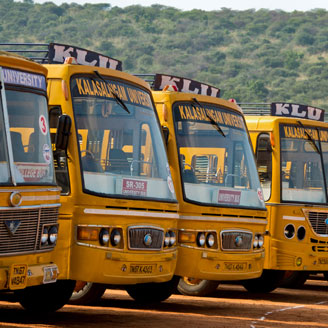
The campus is easy to reach by public transport. Besides public transport, the university provides services for staff and students. These buses take staff and students from home to the campus, but they do not enter the campus. Passengers are dropped off in the university’s parking area. There is no need for shuttle services on campus. The campus is also closed to private vehicles. When needed, transport on campus is done using zero-emission vehicles. KARE provides regular shuttle services to the teaching & non-teaching staff and students. 4 (2 EV Vehicles of 20 seating capacity and 2 EV Auto with capacity of 4 seats) number of shuttle services are available within the campus. This helps the university reduce carbon emissions on a national level.
University provides cycles to all security persons and daily wage laborers. Students are encouraged to use bicycle or by walk within the campus. Students bikes are not allowed inside the campus and only bicycle and electrical vehicle user of students are allowed within the campus.
Every month last working day is observed as Vehicle free day to minimize the air-pollution within the campus. During this day smoke generating vehicles are not permitted inside the campus from 10.00 AM to 4.00 PM. This activity is being carried out by Green Army volunteers.
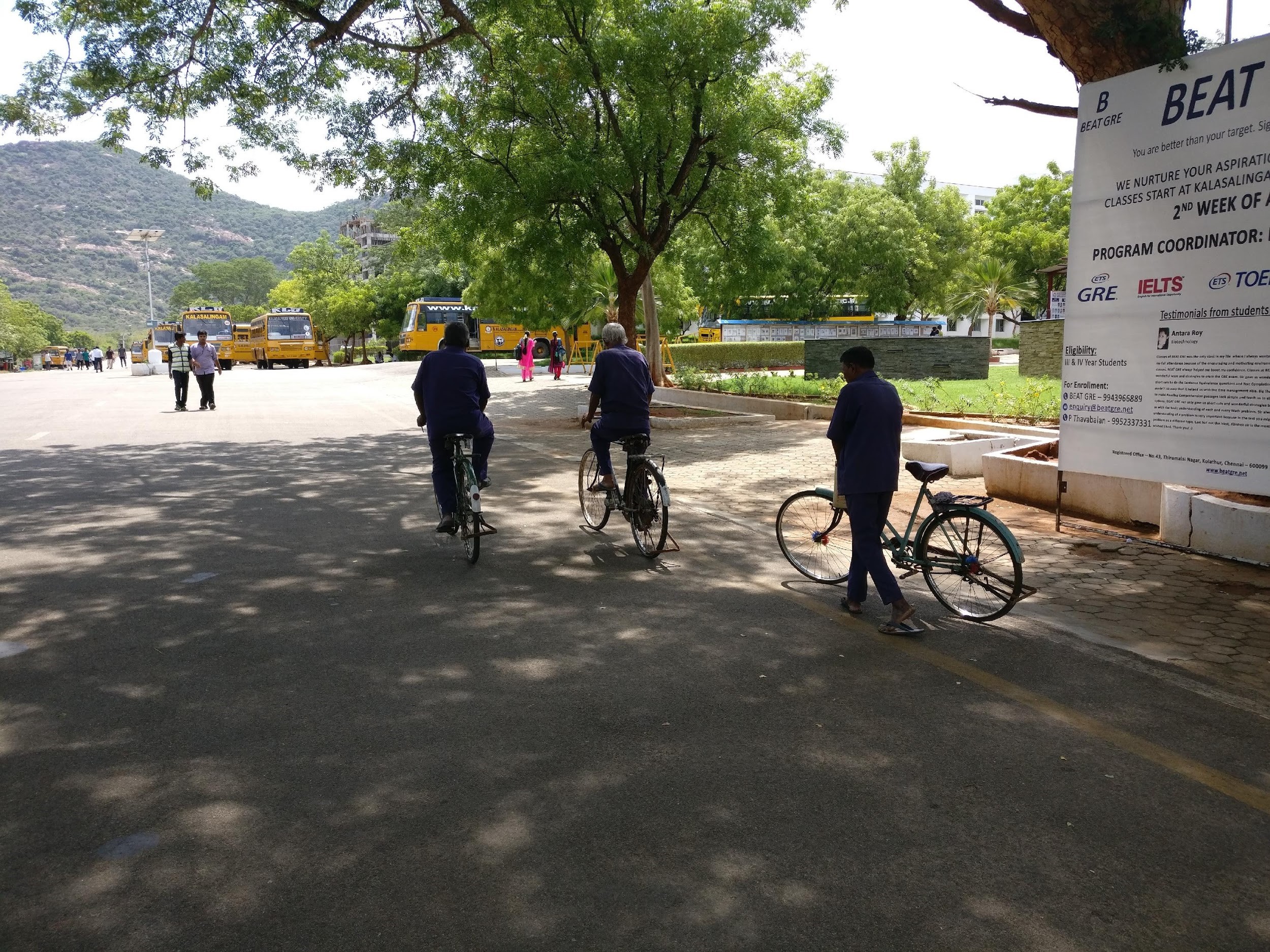
Bicycle Usage within Kalasalingam Academy of Research and Education
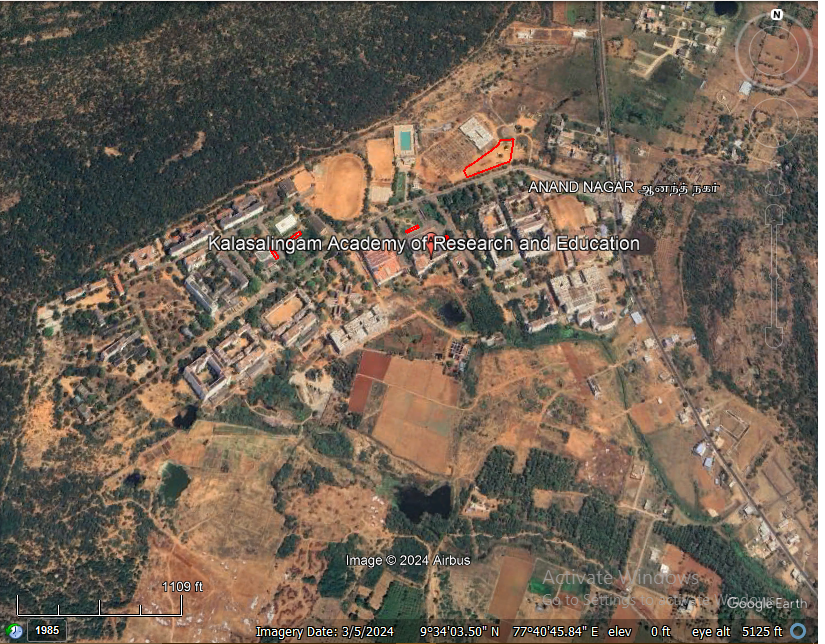
Students’ vehicles are not permitted to park inside the campus.
Private and conventional fuel vehicles are not allowed into the campus, except in necessarycases.
Students and staff are encouraged to travel by public transport rather than individual vehicles.
4 EVs in operation for shuttle services.
Green Army observes Vehicle-Free Day on every week’s last working day to avoid the unnecessary usage of vehicle within the campus. Green Army observes Vehicle-Free Day on every week. During the day the teaching and non-teaching staff are instructed to avoid the unnecessary usage of vehicle within the campus to minimize the air-pollution. The vehicles which are entering the campus are also allowed for vehicle emission testing by the volunteers of Green Army.
EV is used inside the campus which reduces carbon emission and make our campus eco friendly.
78% of students live in campus hostels, so they don’t use any vehicles. Because of this, private vehicles are restricted.
Encouraging bicycle transportation inside the campus.
Private vehicles entry restricted through the campus during working hours.
Private and conventional fuel vehicles are not allowed into the campus, except in necessarycases.
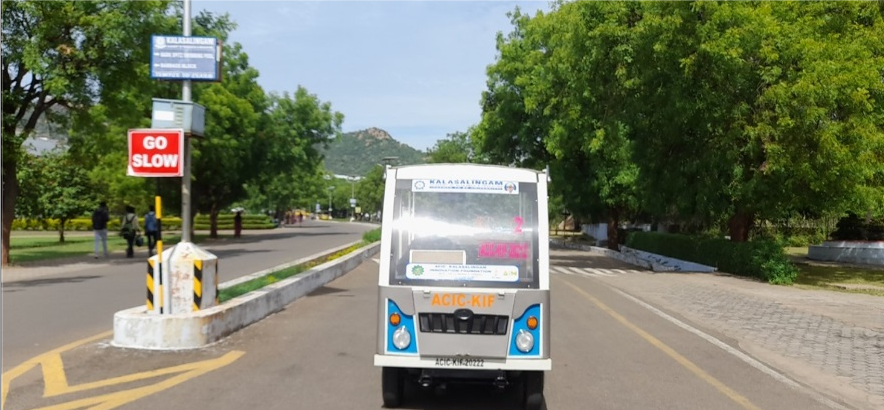
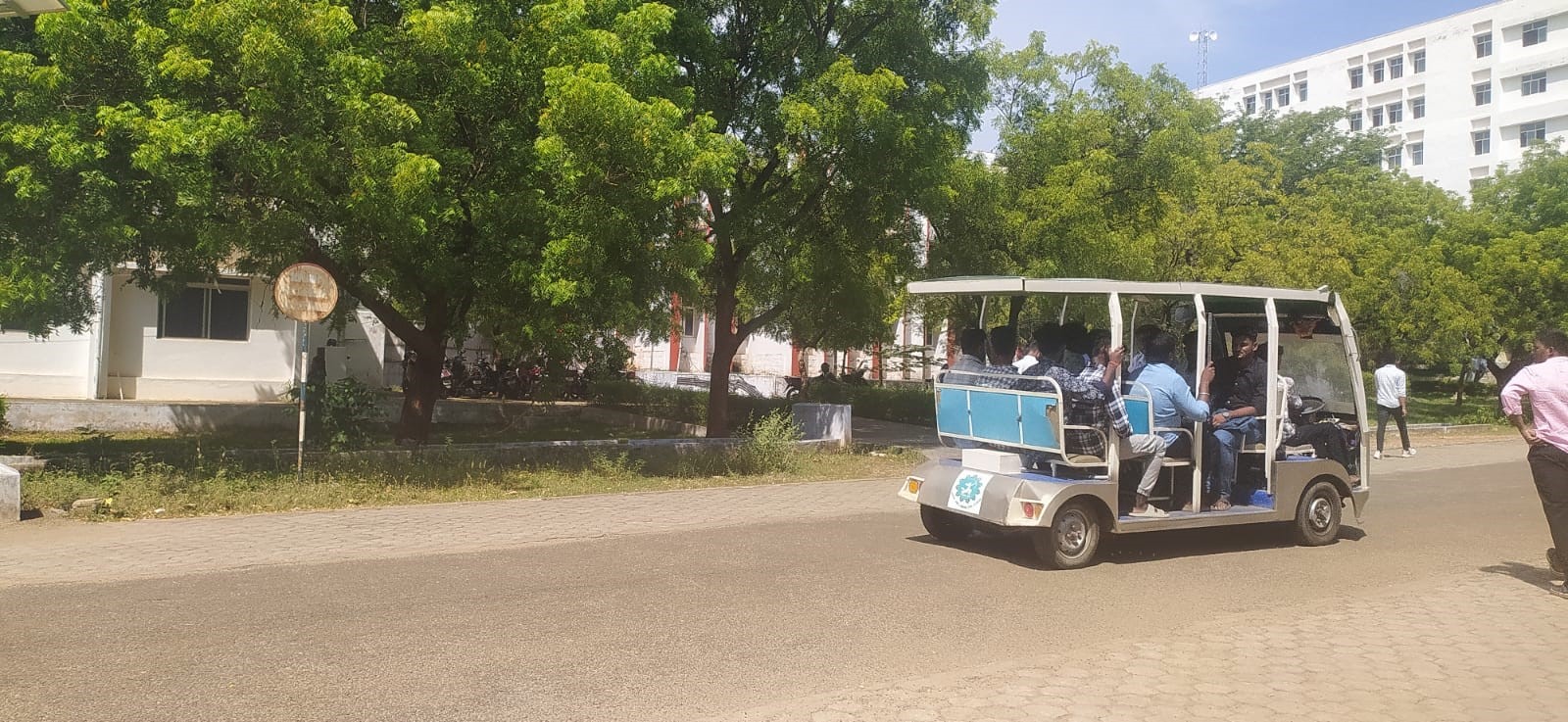
EV for Shuttle Services inside the campus
1. KARE recognizes the importance of climate change and is dedicated to helping reduce greenhouse gas emissions to support nations’ goals. KARE has banned the entry of vehicles inside the academic arena. This policy encourages walking or biking for short distances within the campus to cut down on fuel use and reduce carbon dioxide emissions.
2. Ramps and guiding blocks which have suitable design for pedestrian having physical disabilities. The institution has disabled friendly, barrier free environment. Ramps and handrails are installed at all academic blocks with wheel chairs at various locations for the ease and safe access of facilities in the campus for the disabled persons. The institute has separate policy to ensure the Barrier-Free environment for persons with disability.
3. Street lamp for pedestrian in night. An Institute has taken efforts to save energy by installing sensor-based equipment from the kitchen to common areas in the campus. To highlight some of the major initiatives, around 152 automatic day-light sensors are installed in the street lights. Sensor-based automatic light switching is interfaced with the movement of persons.